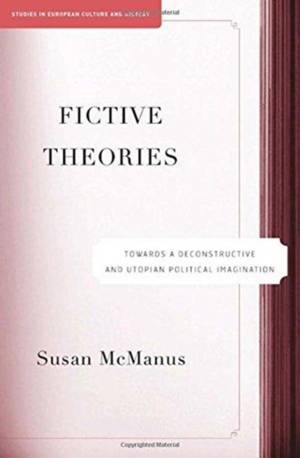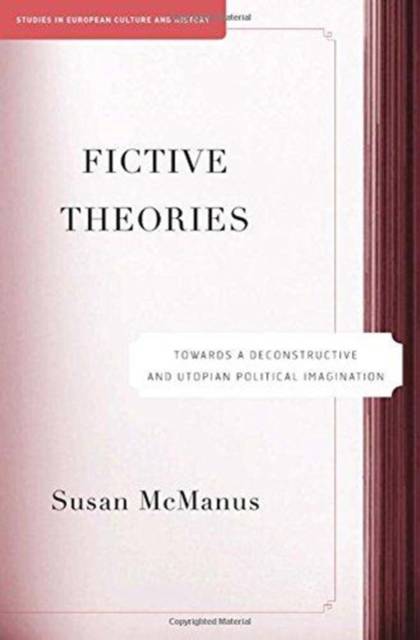
- Afhalen na 1 uur in een winkel met voorraad
- Gratis thuislevering in België vanaf € 30
- Ruim aanbod met 7 miljoen producten
- Afhalen na 1 uur in een winkel met voorraad
- Gratis thuislevering in België vanaf € 30
- Ruim aanbod met 7 miljoen producten
Zoeken
€ 83,95
+ 167 punten
Uitvoering
Omschrijving
Fictive Theories is a significant and innovative intervention in key debates in political theory concerning the ways theory should be philosophically grounded, and the task that political theory should set itself. Susan McManus argues that political theory has been grounded in controlling fictions (from fictions of human nature, to morals laws) that function to close possibility. Starting by interrogating the often hidden work of fictions in political theories, she argues that all theorizing is a form of world-creating. Rather than hiding the fictions at work in political theory, McManus argues that theory should become self-consciously fictive, and that there are political and ethical advantages to so doing. She then develops a uniquely deconstructive and utopian understanding of the project of political theory grounded in the 'fictive': a creative and future-oriented imagination. Rather than seeking to provide blueprints of how a polity should be organized, fictive theories seek to fabricate futures through the anticipatory articulation of possibility. Drawing on a rich range of thinkers from the traditions of political theory (Hobbes, Rousseau, Kant), deconstructive theory (Roland Barthes, Jacques Derrida) and utopian studies (Ernst Bloch), this book will be of interest to researchers, teachers and students in the fields of political theory, utopian studies, literary theory and cultural studies.
Specificaties
Betrokkenen
- Auteur(s):
- Uitgeverij:
Inhoud
- Aantal bladzijden:
- 227
- Taal:
- Engels
- Reeks:
Eigenschappen
- Productcode (EAN):
- 9781349529728
- Verschijningsdatum:
- 8/11/2015
- Uitvoering:
- Paperback
- Formaat:
- Trade paperback (VS)
- Afmetingen:
- 152 mm x 229 mm
- Gewicht:
- 349 g

Alleen bij Standaard Boekhandel
+ 167 punten op je klantenkaart van Standaard Boekhandel
Beoordelingen
We publiceren alleen reviews die voldoen aan de voorwaarden voor reviews. Bekijk onze voorwaarden voor reviews.











